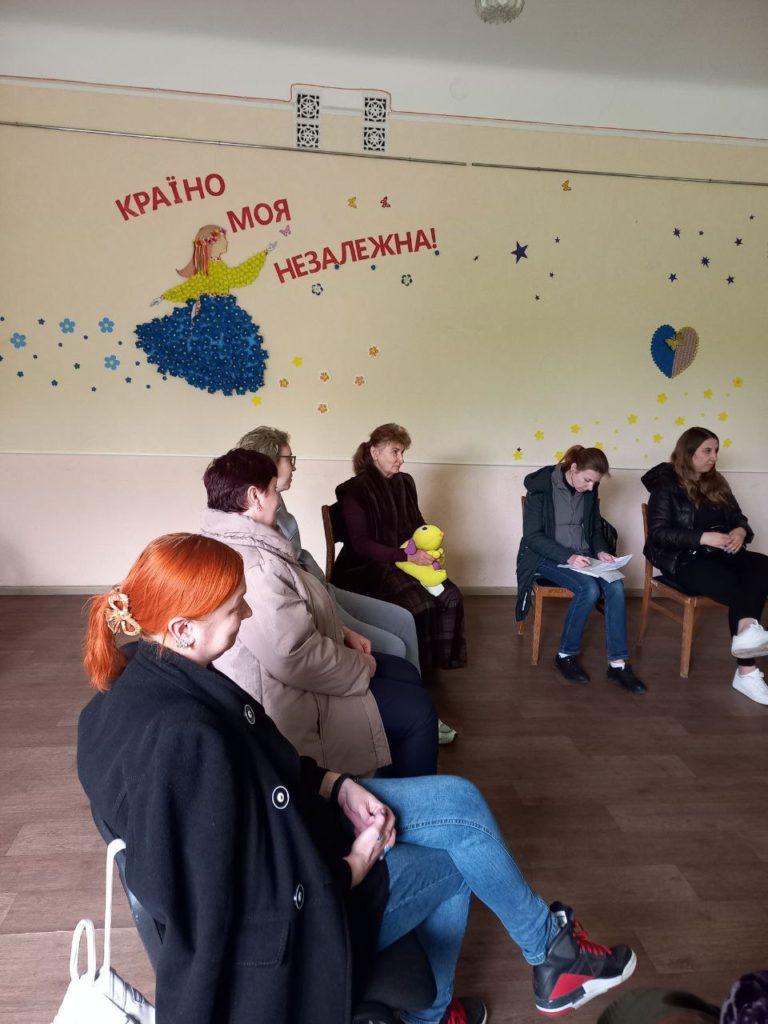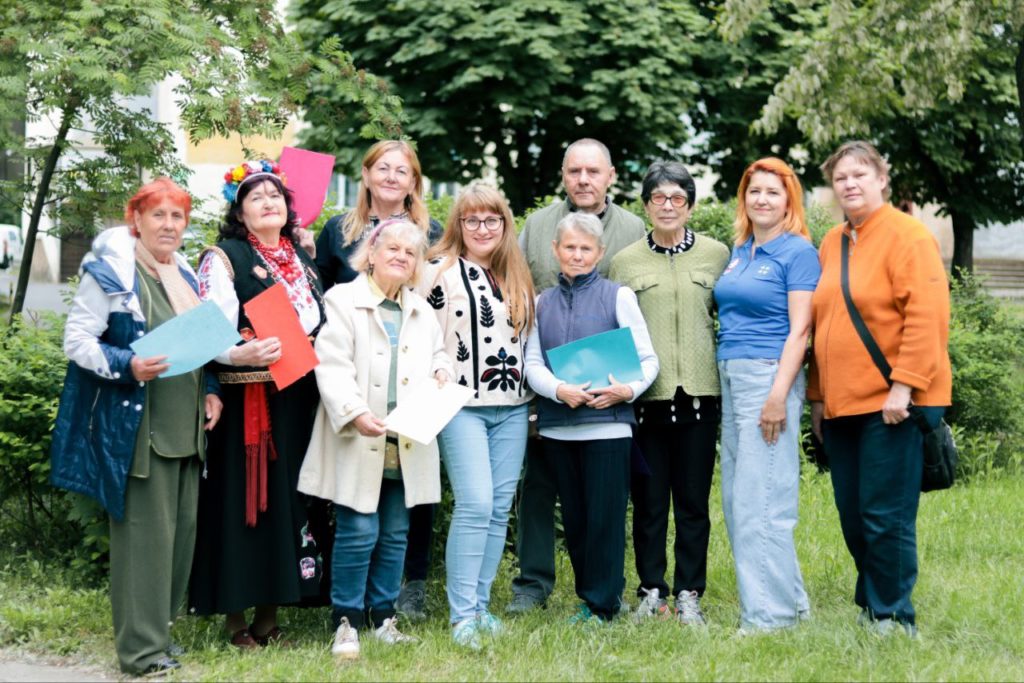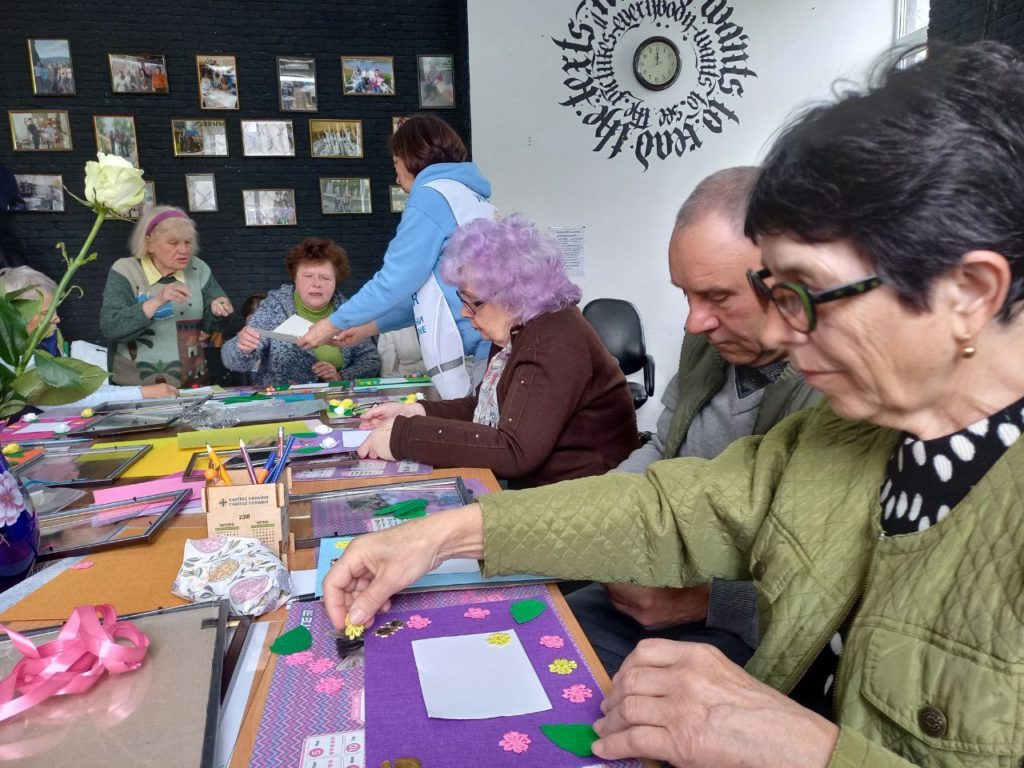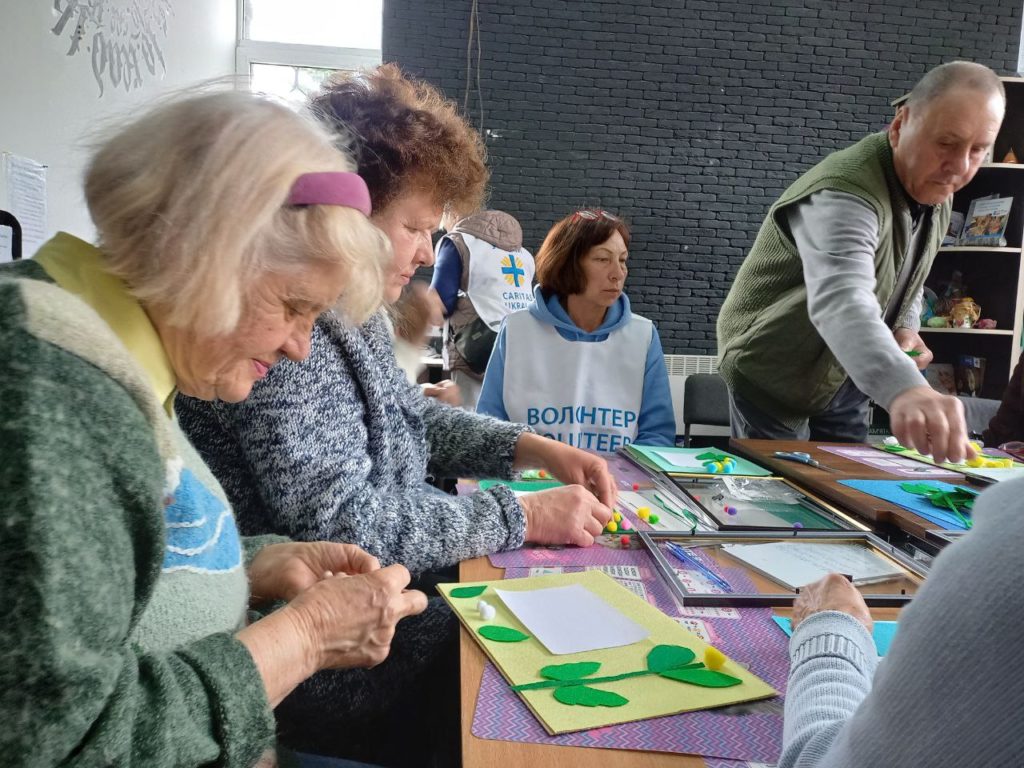Mental health & psycho social support (MHPSS)
Aim of the program:
Improvement of mental health and psychosocial well-being of the war-affected population in Ukraine
Objectives:
1. To improve the capacity of communities and affected populations in adaptation, improvement of psycho social stabilization;
2. To promote resilience and coping strategies of war affected population;
Activities:
Individual support
Group work and community-based interventions
Informative campaigns
Referral system
Locations of services provision
In 20 regions of Ukraine: Lviv, Zhovkva, Drohobych, Stryi, Boryslav; Ivano-Frankivsk, Kolomyia, Nadvirna, Ternopil, Chortkiv, Buchach; Khmelnytsky, Vinnytsia. Kyiv, Fastiv, Chernivtsi, Sumy. Chernihiv, Nizhyn. Kharkiv, Zolochiv, Lozova Zaporizhzhia Cherkasy Dnipro, Kamianske, Kryvyi Rih Kherson, Beryslav Novovolynsk, Lutsk Zhytomyr Kramatorsk Poltava Kropyvnytskyi Kharkiv
MHPSS is implemented in up to 20 projects
Capacity of the program & work with staff
Holding trainings and qualification support for psychologists and project teams
Organization of intervisions /supervision support for projects’ psychologists to prevent burnout of Caritas psychologists, ensure their professional and personal growth, and create a space of mutual support, which is especially important for activities during the war
Assistance with the organization of activities in the field of MHPSS and support of specialists
Retrospectives are conducted to evaluate the effectiveness of team interaction and analyze the work done over a certain period of work, stabilize the condition of specialists at the end of the project and at the stage of uncertainty; intensify the process of finding personal resources
Results of work
- Formation, definition & development of the program;
- Development and finalization of SOPs
- Development and presentation of the methodology of work in communities
- Organization of supervision and interviews for project psychologists
- Organizing and conducting retrospectives at the end of the project
- Increasing the geography of service provision
- Wide coverage of psychologists and projects;
Вenefits of MHPSS service

- A flexible approach,
- Safety guided by the basic principles of the IASC Guidelines and the national program “You are like”
- Services are provided regardless of religious or other personal beliefs;
- Possibility of referral to other centers/services in the Caritas network to provide the most comprehensive assistance focused on the needs of beneficiaries.

Development of expertise in other programs
Formation of recommendations for service provision
Training in standardized programs for specialists Creating PSP programs for psychologists and social workers based on Caritas Ukraine

Writing recommendations on the areas
Improving the professionalism of staff and the quality of comprehensive services in accordance with international standards for humanitarian assistance and recommendations of the Protection Cluster, strengthening the system of psychosocial social services:
Updating SOPs for working with children and adolescents on MHPSS, developing recommendations and a roadmap for referrals and counseling in line with MHPSS cluster standards;
Developing MHPSS programs for psychologists and social workers on the basis of Caritas Ukraine (and, if necessary, for other workers, including hotline workers)
Develop Methodological guidelines for psychosocial support and accompaniment of children, adolescents and their parents/guardians
Developing methodological guidelines for conducting peer support groups
Development in the provision of services in the MHPSS for a wide range of beneficiaries
Expansion of staff in the teams
Preparation of psychoeducational and informative material on Mental Health Development of expertise in program areas

Key needs
Psychologists work requires a quick response to problems and complex requests of beneficiaries;
Psychologists need to be updated and supported by their colleagues, as activities in the field of PSS have a high potential and level of professional burnout
All psychologists involved in the work live in the same conditions as beneficiaries (relative security, uncertainty)
The need for training in international and evidence-based methods at the level of supervisors and trainers, so that CU specialists and the network can further train specialists within the organization
The need for sustainable funding for the MHPSS program

